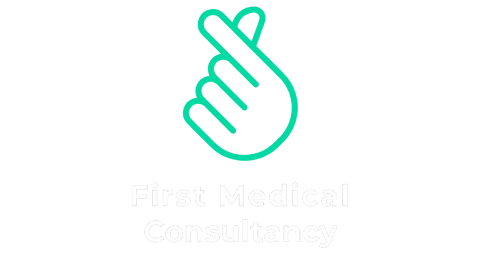As I delve into the Middle Eastern healthcare landscape, I’m struck by the vast array of opportunities waiting to be uncovered.
With over 850 million LinkedIn users worldwide, the platform is a treasure trove for professionals seeking valuable connections and career-advancing opportunities.
But what’s in it for healthcare professionals in the region? I’ve discovered that by leveraging LinkedIn effectively, I can tap into new career paths, stay updated on the latest industry trends, and network with key stakeholders.
With the healthcare sector in the Middle East expected to reach $243.6 billion by 2025, the possibilities are endless – and I’m excited to explore them!
Key Takeaways
- LinkedIn serves as a leading professional networking tool for healthcare professionals in the Middle East.
- A tailored LinkedIn profile with relevant keywords enhances visibility to healthcare recruiters in the region.
- Joining healthcare-related groups and engaging with content on LinkedIn fosters connections with industry professionals in the Middle East.
- Utilizing LinkedIn’s job search feature and setting up job alerts can help uncover relevant healthcare listings in the region.
- Researching the Middle East healthcare sector and networking with experienced professionals can provide valuable insights into job opportunities.
The Importance of LinkedIn in Healthcare Careers

One needn’t look far to see the impact of LinkedIn on professional careers, particularly in the healthcare industry. As a leading professional networking tool, LinkedIn has transformed the way healthcare professionals connect, network, and find job opportunities. With millions of users worldwide, LinkedIn has become a crucial platform for healthcare job seekers and employers alike.
In the Middle East, LinkedIn has seen significant growth, with a rising demand for healthcare jobs. The platform provides a unique opportunity for healthcare professionals to expand their professional network, stay updated on the latest healthcare job market trends, and improve their professional branding.
By utilizing LinkedIn, healthcare professionals can increase their visibility, build relationships with key stakeholders, and access a wide range of LinkedIn healthcare jobs.
As the healthcare industries in the Middle East continue to grow, the importance of LinkedIn in healthcare careers can’t be overstated. By leveraging the potential of LinkedIn, healthcare professionals can stay ahead of the curve, capitalize on new opportunities, and take their careers to the next level.
With its vast reach and networking capabilities, LinkedIn is an indispensable tool for anyone looking to succeed in the healthcare industry.
Crafting an Impressive LinkedIn Profile: (Step-by-step guide to creating a standout profile)

I still remember the day I realized my LinkedIn profile was doing me more harm than good. I had just graduated with a degree in healthcare and was eager to dive into the competitive job market in the Middle East. But despite my impressive credentials, I just wasn’t getting any bites.
It wasn’t until I took a hard look at my LinkedIn profile that I realized the problem. My photo was a blurry selfie, my headline was a generic “Healthcare Professional,” and my summary read like a dry resume.
Professional photo and catchy headline
I knew I needed to make some serious changes if I wanted to stand out in the crowded healthcare job market. So, I started by updating my photo to a professional headshot. It’s amazing how much of a difference a good photo can make – suddenly, I looked like a serious contender for top healthcare jobs.
Next, I crafted a catchy headline that highlighted my unique strengths and skills. Instead of “Healthcare Professional,” I opted for “Innovative Healthcare Leader | Driving Change in the Middle East.”
Writing a compelling summary
But the real game-changer was when I rewrote my summary. I ditched the dry, resume-style writing and opted for a more personal, storytelling approach. I highlighted my passion for healthcare, my experience working with top hospitals in the Middle East, and my achievements in improving patient outcomes.
I also made sure to include relevant keywords that recruiters and potential employers might be searching for, such as “healthcare management,” “patient-centered care,” and “medical innovation.”
As I continued to tweak and refine my profile, I noticed a significant increase in engagement. Recruiters were reaching out to me, and I was getting more views and connections than ever before. I was thrilled to see that my hard work was paying off.
Detailing your experience, education, and certifications
But I didn’t stop there. I also made sure to detail my experience, education, and certifications relevant to healthcare. I included specific examples of my achievements, such as “Improved patient satisfaction ratings by 25% through the implementation of a new patient-centered care model” or “Developed and implemented a training program for healthcare professionals that resulted in a 30% increase in staff retention.”
By showcasing my skills and accomplishments in a clear and concise manner, I was able to demonstrate my value to potential employers and recruiters.
Tips for including keywords that attract recruiters
One of the most important things I learned during this process was the importance of keywords. By incorporating relevant keywords into my profile, I was able to increase my visibility and attract more recruiters and potential employers.
For example, I included keywords like “healthcare job opportunities 2024” and “Middle East healthcare jobs” to attract recruiters who were searching for top talent in the region.
In short, crafting an unforgettable LinkedIn profile took time and effort, but it was worth it. By showcasing my expertise, skills, and achievements in a clear and concise manner, I was able to stand out in the competitive healthcare job market in the Middle East and secure new opportunities.
Whether you’re just starting out in your healthcare career or looking to take your career to the next level, I highly recommend investing the time and effort into creating a top-notch LinkedIn profile.
Networking Effectively on LinkedIn

How can you access the full potential of LinkedIn to advance your healthcare career in the Middle East? Building a professional network is key to revealing opportunities in the region’s healthcare sector.
I’ve found that joining healthcare-related groups and forums on LinkedIn is an effective way to connect with like-minded professionals and recruiters. By engaging with posts and sharing industry-related content, I can establish myself as a thought leader in my field.
Engaging with healthcare content on LinkedIn also allows me to stay up-to-date on the latest developments and trends in the Middle East’s healthcare industry. I make it a point to attend virtual healthcare networking events and participate in online discussions to expand my network.
When reaching out to potential connections, I send personalized requests that highlight our shared interests or experiences. This approach has helped me build meaningful relationships with healthcare professionals and recruiters in the region.
Job Searching on LinkedIn

I’ve found that job searching on LinkedIn can be an efficient way to find healthcare opportunities in the Middle East, especially when I tailor my search to specific locations, roles, and industries.
Utilizing the platform’s job search feature effectively is key to uncovering relevant healthcare job listings. I start by filtering jobs based on location, role, and industry, which helps me pinpoint opportunities that match my skills and interests. For instance, I can search for healthcare roles in the UAE or other specific locations in the Middle East.
To stay up-to-date on new healthcare opportunities, I also set up LinkedIn job alerts. This feature allows me to receive notifications about new job postings that match my search criteria, ensuring I don’t miss out on potential opportunities.
When applying for jobs through LinkedIn, I follow best practices to increase my chances of getting noticed. By leveraging LinkedIn for career growth, I can streamline my job search and focus on online networking for healthcare professionals in the Middle East.
This targeted approach helps me make the most of my job search healthcare Middle East efforts.
Success Stories and Case Studies

I still remember the early days of my own job search, scrolling through countless LinkedIn profiles, wondering how others had managed to snag their dream jobs in the Middle East’s healthcare sector.
It wasn’t until I stumbled upon several success stories from healthcare professionals who’d found jobs in the region that I began to understand the power of inspiration.
Showcase success stories of professionals
One particular story that stood out was that of a nurse who’d moved from the UK to Dubai. She credited her optimized LinkedIn profile as the key to catching the attention of recruiters.
Her headline and summary were clear, concise, and showcased her skills and expertise in a way that made her stand out from the crowd. I realized that I’d been making a critical mistake by not tailoring my profile to my career goals.
Another common thread among these success stories was the importance of active engagement with healthcare recruitment platforms. Joining LinkedIn groups and online forums not only kept them up-to-date with the latest employment trends in the Middle East but also provided a platform to connect with potential employers. I made a mental note to start engaging more with these platforms, asking questions, and participating in discussions.
Inspire readers with real examples to motivate their job search efforts
What I found particularly inspiring about these success stories was the fact that they weren’t overnight successes. Many of these professionals had faced rejection and setbacks along the way, but they persisted, using each failure as an opportunity to learn and grow.
One doctor, in particular, had applied to over 20 jobs before finally landing his dream role in a hospital in Abu Dhabi. His story taught me the importance of perseverance and not giving up on my goals.
As I delved deeper into these success stories, I began to notice a pattern. Many of these professionals had taken the time to research the healthcare sector in the Middle East, understanding the nuances of the local job market and tailoring their applications accordingly.
They’d also leveraged their professional networks, seeking advice and guidance from those who’d already made the move.
What struck me most about these stories was the sense of community that existed among healthcare professionals in the Middle East. Many of them had found jobs through referrals or word of mouth, highlighting the importance of building relationships and connections in the industry.
I realized that I’d been focusing too much on my own job search, neglecting the value of networking and collaboration.
Reading through these success stories was a turning point in my own job search. It inspired me to take a more proactive approach, optimizing my LinkedIn profile, engaging with recruitment platforms, and building relationships with professionals in the industry.
I learned that finding a job in the Middle East’s healthcare sector requires more than just a degree and a resume; it requires persistence, research, and a willingness to learn and adapt.
Continuous Learning and Professional Development
The success stories from healthcare professionals in the Middle East underscored the importance of persistence, networking, and tailored job applications.
As I continued to research, I realized that continuous learning and professional development are similarly essential in the healthcare field. The industry is constantly evolving, and professionals must stay up-to-date with the latest technologies, treatments, and best practices.
To achieve this, I recommend leveraging LinkedIn Learning courses, which offer a wide range of healthcare-related topics. Here are some key areas to focus on:
- Critical skills for healthcare jobs: Develop skills in data analysis, digital health, and patient-centered care to increase your job prospects.
- Healthcare certifications: Pursue certifications like Certified Healthcare Professional (CHP) or Certified Medical Administrative Assistant (CMAA) to demonstrate your expertise.
- Industry connections: Expand your network by engaging with industry leaders, attending webinars, and participating in online forums.
- Specialized courses: Take courses on topics like healthcare management, medical writing, or health informatics to improve your knowledge and career prospects.
Conclusion
Uncovering LinkedIn healthcare opportunities in the Middle East can be a game-changer for professionals looking to elevate their careers.
A strong presence on the platform is crucial, and by implementing effective strategies, you can connect with key stakeholders and drive success in this rapidly evolving sector. Effective utilization of LinkedIn can help you stay ahead in the Middle Eastern healthcare landscape.
To take the next step in your career, consider partnering with a reputable consultancy like First Medical Consultancy, with over 10 years of experience in connecting talented healthcare providers with exceptional opportunities across the region.
